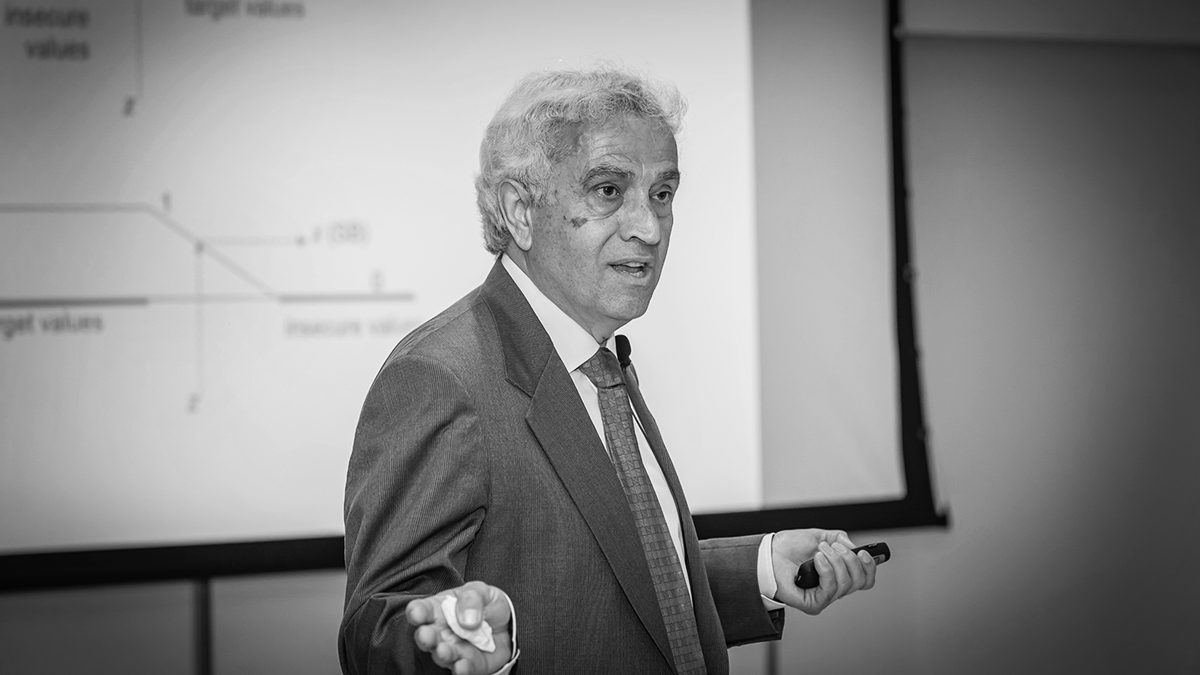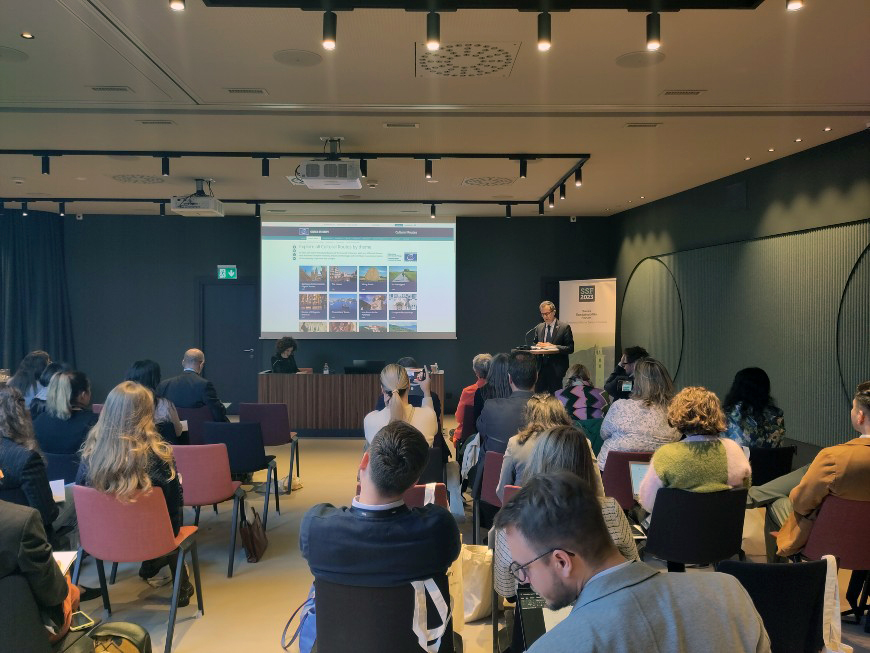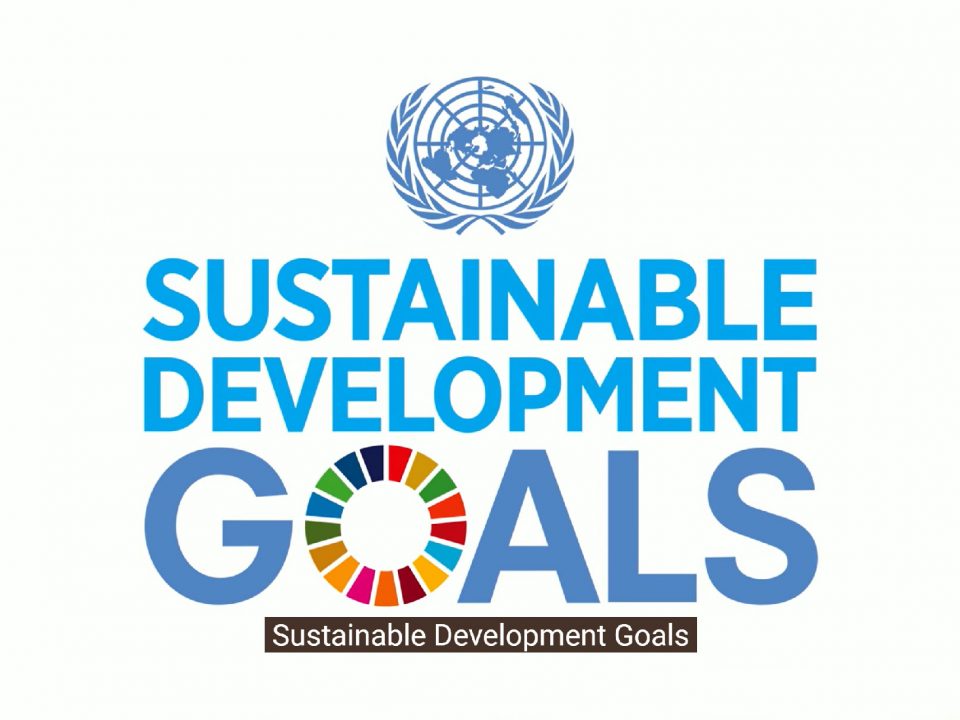Prof. Yannis Phillis for the environmental struggle: Time is running out in many areas

Professor Yannis A. Phillis*, one of the judges of the 7th international poster contest by the Typography Museum, gave a speech regarding the importance of sustainability, but also the dangers that Earth is facing due to human decisions.
Typography Museum, located in BIOPA, Chania, is a member of the Industrial Heritage Route, certified by the Council of Europe.
“It is a privilege for me to be part of the committee of the 7th international poster competition organized by the Museum of Typography of Yannis and Eleni Garedakis. Primarily because of its theme: “Planet Earth at the ecological crossroads.” This theme is dear to me and couldn’t be more timely. Yanni and Eleni, I congratulate you for your choice.
I have been lecturing, writing and doing research on the environment since I was an engineering student. All these years I was always hoping for some progress but reality proved otherwise. Although science is unequivocal, human activities, mostly for the sake of short-lived profits for a few, are destroying our home, often irreversibly. Sustainable growth is a contradiction in terms on a finite planet. Infinity is a mathematical fiction; everything is finite including how much growth Earth can tolerate. The motto of the fossil fuel industry “drill baby, drill” is plain idiotic nowadays.
Think of lost species, climate warming, forever chemicals, plastics, droughts, natural (actually unnatural) disasters, ice melting, forest losses, air pollution. And all those coupled with obscene inequalities and poverty give you a glimpse of the present state of our society and what the future has in store for us and all the living creatures on our tiny speck in the universe. It is high time that we took action if we want to bequeath a livable planet to our children. We can no longer tolerate ignorant or indifferent leaders who care only about their reelection and glory. We can no longer accept an economy that cashes in the environment so that a group of billionaires may see their names in the pages of Forbes. None of this is sustainable.
A few specific examples suffice to show that something is seriously wrong with our economic activities. In 2021 temperatures in Greece reached 46οC. Many of the country’s forests were ravaged by mega fires with enormous ecological and social consequences.
In Italy temperatures reached the unprecedented level of 48.8οC. At the same time in Germany and Belgium enormous floods destroyed property and killed people. A year later back in Greece, until July 55,000 thousand acres of mature forest were incinerated and part of the unique protected forest of Dadia in Thrace was burned down―a 50% rise relative to the average between 2006-2021, according to EFSIS (European Forest Fire Information System).
In the summer of 2022 the lovely Portuguese town of Pinhão experienced 47οC. Only in that summer heatwaves in Western Europe caused 20,000 deaths. To continue the story, in April 2023 temperatures in the Tai province of Tak registered 45.4οC and in Luang Prabang, Laos 42.7οC.
Recent research showed that, among 19,000 young Australians of ages 15-19, 26% were “fairly or very worried” about climate change in Australia. A sizable 38% experience stress or feel desperate. They feel that the world won’t be livable and they didn’t want to have children.
The Lancet report of October 2022 noted:
Deaths of infants below one year and elderly above 65 attributed to extreme temperatures rose by 68% in 2017-2021 compared to 2000 – 2004.
In 2021 470 billion man hours were lost at a cost of $700 billion due the extreme weather, a 40% rise compared to 1990.
Malaria seasons rose by 32% in the Americas and 15% in Africa relative to 1950 and dengue fever rose by 12% in the same period.
Red meat and milk contribute 55% of agricultural greenhouse gases emissions. A drastic reduction of red meat eating would help climate and prevent 11.5 million diet related deaths.
Several solutions have been proposed to the climate problem, among them production of hydrogen as the fuel of the future. This is mostly plain greenwashing. So called blue hydrogen is produced from natural gas generating in the process climate destroying gases. In some sense it is the Trojan horse of more fossil fuels. Green hydrogen may produced on a small scale but this is another story.
My involvement in the selection of the best posters was quite challenging but also enjoyable. “Best” for me meant a strong and direct message of environmental urgency in conjunction with artistic value. It had to do with a global outlook of the planet. After all the theme of the competition demanded that. As well as its direct and urgent ecological message, a poster had to have artistic appeal and proper grammar. Of course, there is a lot of subjectivity in such a process and that is the reason why three members voted for their preferences instead of one to diffuse subjectivity to some extent.
A paper accepted for publication in the Harvard Environmental Law Review, suggests to sue oil companies. Using legal arguments it claims that it is possible to prosecute those corporations on grounds of murder. Given that oil corporations knew very well that their products warm the climate causing extreme weather and the appearance of new diseases, thus killing people, and they tried hard to obfuscate the truth, they could be brought before justice for murder.
BP had been sued in the past after the Gulf of Mexico disaster that killed several people and created an ecological disaster. The company pleaded guilty in court for manslaughter and paid in all $65 billion. However, even if oil companies pay fines, it is more profitable for them to continue drilling because their profits are way higher than the cost. And all this with the blessings of most governments, which sometimes are literally bought by oil, destroying climate and our children’s future.
But let’s go back to the competition. I went through more than one thousand posters and often felt sorry having to reject some interesting ones but this is life in a selection process. Regardless of outcome, I saw passion and quality in many submissions. People understand and worry. At the same time I noticed that some submissions had been gulled by the fossil fuel industry. I saw posters with pictures of hydrogen or cows feeding in idyllic fields. What I was looking for was simplicity, directness of the message, a global ecological perspective and esthetic sensitivity.
The choices the committee made satisfy all those. People realize immediately that something is gravely rotten on Planet Earth. The big question is what to do. The first step is to educate ourselves. The second is to act by voting for those politicians who understand the ecological crossroads – most don’t -, by changing lifestyles, consuming less, avoiding plastics, eating less meat, using public transportation, becoming activists. Take to the streets demanding change. Most politicians and corporate CEOs would be scared of massive peaceful protests and most of them would do nothing in the absence of massive protests. Their priorities are money, power, glory. The rest is for us.
The ten-thousand-year-old experiment of our civilization is threatened by a premature end the same way the life of an obese person could prematurely end if he continues eating excessively.
The final word of the environmental struggle has not been written. But time is running out in many areas. Let’s carry on the struggle with greater passion and conviction. This competition is a small step towards this goal. We must continue. Thank you.
Yannis A. Phillis”
*Professor Emeritus
Technical University of Crete
School of Production Engineering and Management



